
Energy storage systems and renewable integration have become the focal points in the modern energy discourse. While these topics are widely discussed, a critical analysis reveals a glaring gap in the approach regulators and system managers take. The current emphasis is predominantly on generation-side management, with measures such as round-the-clock supply, firm dispatchable renewable energy (FDRE), and storage-inbuilt solutions being designed to make renewable energy more reliable. However, this approach largely neglects demand-side management, an area ripe with opportunities for innovation and efficiency.
One of the most promising yet underexplored avenues for addressing renewable integration challenges is effectively using electric vehicles (EVs). The energy sector can achieve remarkable advancements by leveraging EVs as decentralised energy storage units. Currently, the dominant strategy is to make generation follow the load curve, but little attention is paid to managing it. This creates inefficiencies and limits the potential for optimal utilisation of renewable resources.
Bu hikaye EPR Magazine (Electrical & Power Review) dergisinin January 2025 sayısından alınmıştır.
Start your 7-day Magzter GOLD free trial to access thousands of curated premium stories, and 9,000+ magazines and newspapers.
Already a subscriber ? Giriş Yap
Bu hikaye EPR Magazine (Electrical & Power Review) dergisinin January 2025 sayısından alınmıştır.
Start your 7-day Magzter GOLD free trial to access thousands of curated premium stories, and 9,000+ magazines and newspapers.
Already a subscriber? Giriş Yap
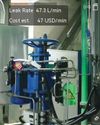
HIKMICRO AI Acoustic Imager enhances industrial efficiency by detecting air leaks
Industry studies suggest that leaks in compressed air systems can account for up to 30 percent of energy waste. Compressed air leaks are often harder to detect than other types of gas leaks because they do not produce noticeable smells or colours.

Driving innovation and expanding capacity to accelerate India's 2030 renewable energy goal
The company has outlined a strategy to expand its manufacturing capabilities in a phased approach to boost solar panel production to 13 GW. This includes preparation to launch a 4 GW TOPCon cell manufacturing plant by FY 2026-27.

By 2040, 49% of electricity will come from RE
According to the REN21 Renewables 2020 Global Status Report, investments in renewable energy projects and programmes totalled US$64.4 billion between 2014 and 2019.
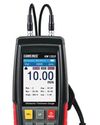
KUSAM-MECO introduces advanced models 'KM -131D' and 'KM 891'
The KM-131D is an ultrasonic thickness gauge model, while the KM 891 is an auto-ranging true RMS digital multimeter with data logging and a PC interface.

Customisable earthing solutions for smart city safety and sustainability
The firm offers a range of earthing compounds, grounding electrodes, and backfill materials, each tailored to optimise performance for different soil conditions, resistivity levels, and environmental factors. Whether it is a smart grid, renewable energy system, or EV charging station, its solutions can ensure safety, efficiency, and longevity.
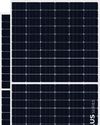
Novasys Greenergy pioneering innovation in solar panel manufacturing
The company's mission is to provide reliable, efficient, and affordable solar energy products for both residential and commercial markets.
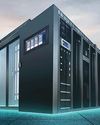
Make buildings and data centres hubs for energy efficiency
Delta modular UPS (Uninterruptible Power Supply) systems are engineered to help achieve maximum energy efficiency and cut operational costs across residential and commercial requirements.

Smart energy management for sustainable smart cities
Renewable energy, efficient power distribution, and advanced storage technologies are at the heart of smart city initiatives, opening the way for greener, more sustainable urban environments.
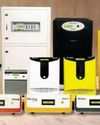
Su-Kam is an added layer of resilience against grid failures
Su-Kam offers lithium-ion battery solutions and advanced ESS (Energy Storage Systems) racks, Which enhance energy storage capacity and offer longer life cycles. Its hybrid inverters can operate both off-grid and on-grid, helping to reduce dependence on the national grid.

Advancements in energy storage boosting reliable and clean power solutions
Lithium-ion batteries, with high energy density and declining costs, power everything from EVs to grid storage. Flow batteries offer long-duration storage ideal for balancing renewable sources, while solid-state batteries, though still in development, promise improved safety and lifespan.